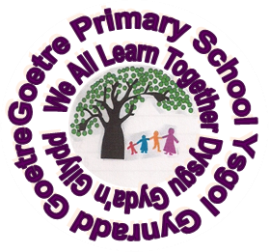RSE
Young people should have the right to access information that keeps them safe from harm. This includes learning about healthy relationships, keeping safe, online and offline, and being confident to raise issues with responsible adults. RSE is designed to safeguard all our children and young people, supporting them to develop knowledge, skills and behaviours that will assist in protecting them throughout their lives. This is critical to building a society which treats others with understanding and empathy, whatever their ethnicity, social economic background, disability, sex, gender or sexuality. RSE is a mandatory element of Curriculum for Wales. This means that schools and settings must use the RSE Code to provide developmentally appropriate RSE learning for all learners aged 3 – 16. The Summary of Legislation section of the Curriculum for Wales Framework sets out the legal status of RSE within the Curriculum and Assessment (Wales) Act 2021.
What is included within the RSE Code? The Relationships and Sexuality Education (RSE) Code provides detail for schools and settings on what must be taught and when. We encourage parents to read the published RSE Code which provides clarity about what their children will learn and when. Cross-cutting themes for designing your curriculum - Hwb (gov.wales). Great care has been taken to ensure that all learning within RSE will be developmentally appropriate, and the teachers, stakeholders and professionals involved in its development have ensured that this is reflected within the Code. The Relationships and Sexuality (RSE) section of the Curriculum for Wales framework contains:
• RSE Code - What will be taught and at what phase;
• Statutory Guidance - This supports schools in developing their RSE curriculum.
Developmentally appropriate Relationships and Sexuality Education (RSE)
There are legal requirements for RSE to be developmentally appropriate, including the resources schools use in implementing RSE. Topics like online safety, consent and sexual health are all included in the Code, but at developmentally appropriate phases so learners aren’t exposed to things that aren’t appropriate to their age and development.
The content is set within the context of broad and interlinked learning strands, namely:
- relationships and identity;
- sexual health and well-being; and
- empowerment, safety and respect.
At a younger age, for example, they will be taught about treating each other with kindness and empathy. As children grow older, they will gain an understanding of topics such as online safety – all topics will be handled in a sensitive way. Learning in RSE will also include recognising, understanding and speaking out about all forms of discrimination, violence, abuse and neglect and to seek support and advice on a range of issues from trusted sources. RSE is also legally required to be objective, critical and pluralistic: meaning schools and settings must provide factual information and on questions of values, a range of views on a given subject, commonly held within society.
